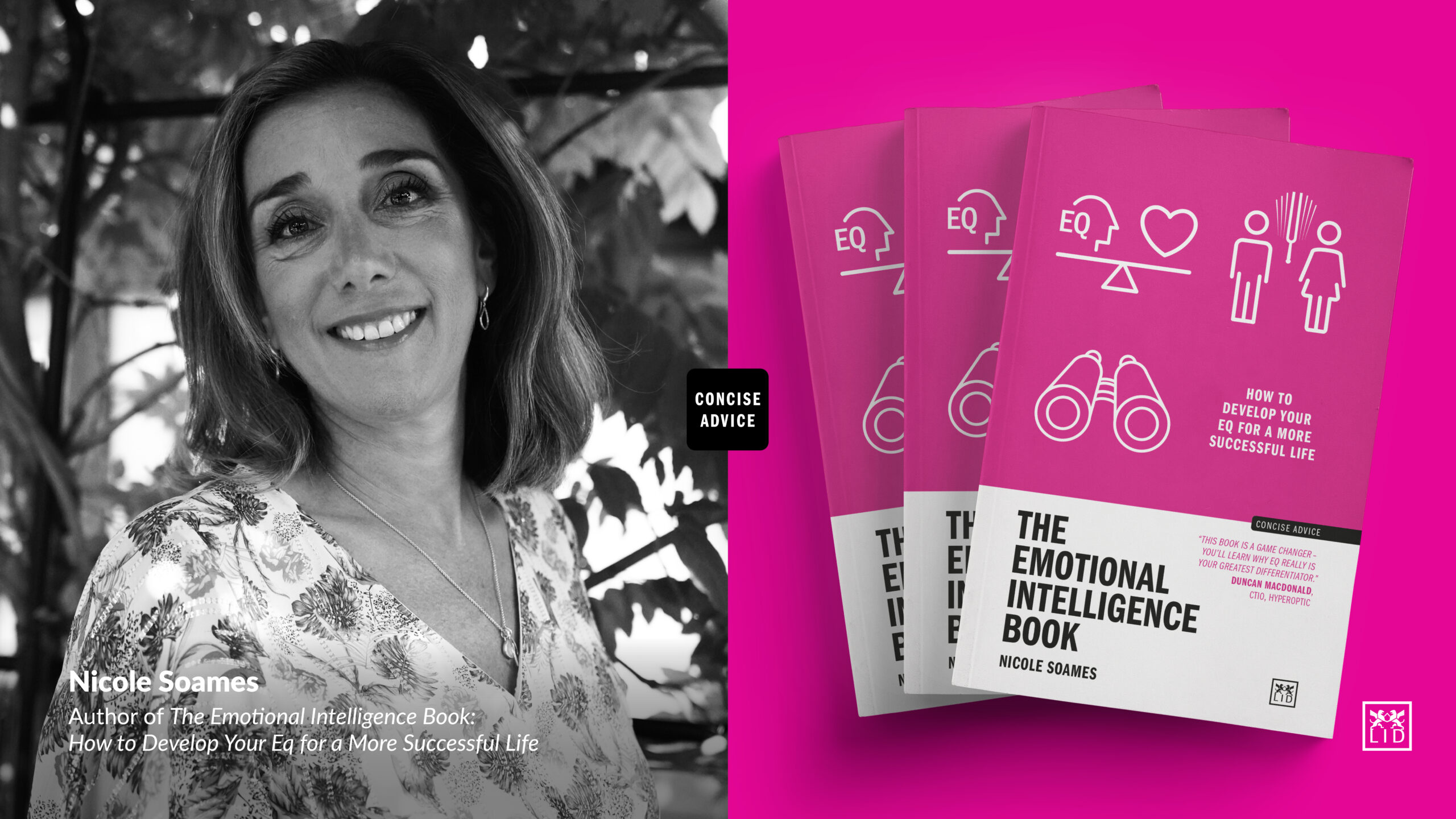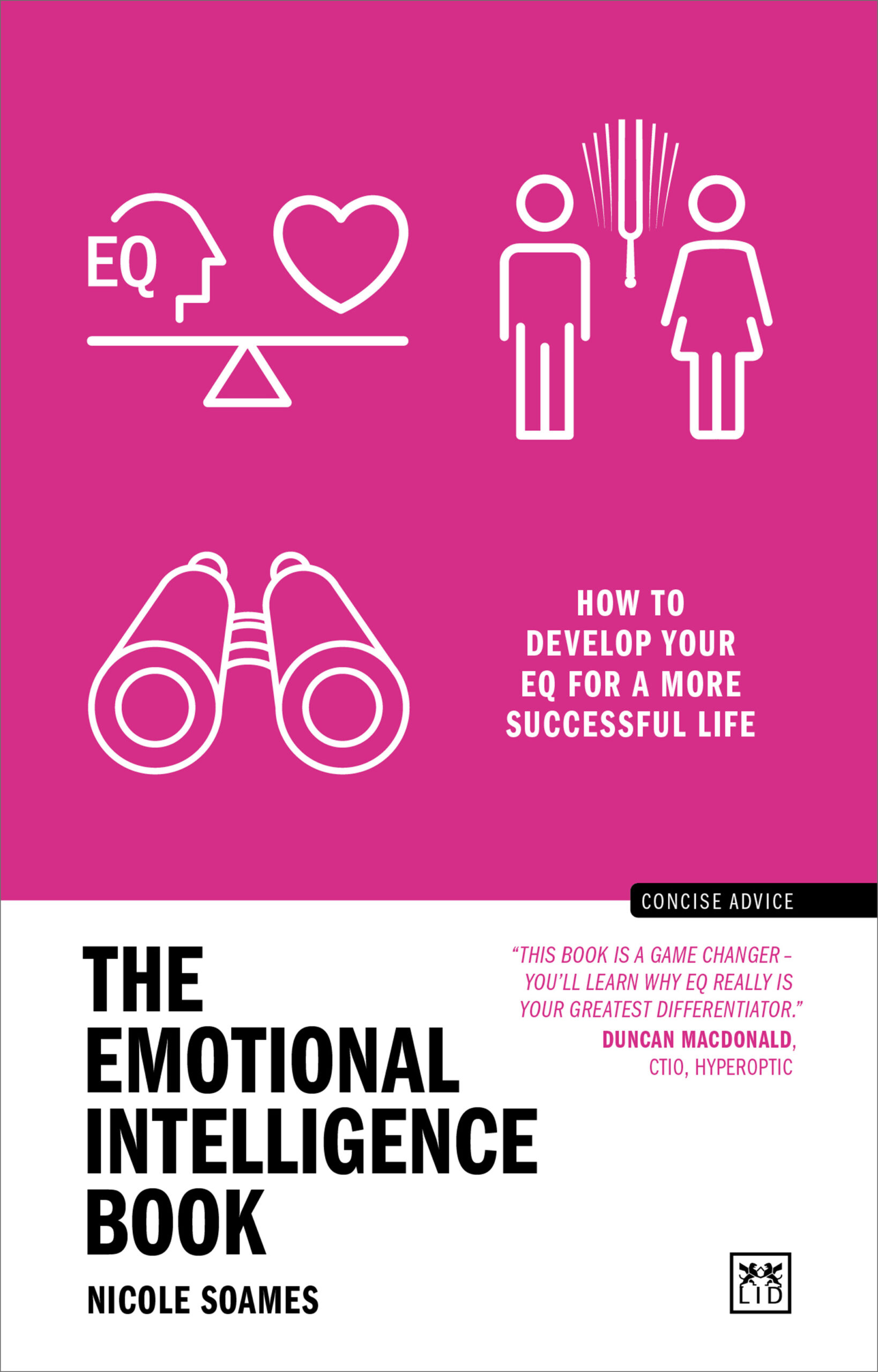|
How To Build Meaningful Relationships with Nicole Soames
How To Build Meaningful Relationships

By Guest Contributor Nicole Soames
Author of The Emotional Intelligence Book, Nicole Soames, shares what skills we need to develop to be able to build strong relationships with others.
Human beings are fundamentally social creatures. Since the beginning of time, we have liked to operate in a pack. Even if you’re an introvert, you still need to rely on other people for help as hardly anyone is an individual contributor at work or in life. Once we recognize that we can’t be successful on our own, we begin to understand the true value of building meaningful relationships with others to help us get things done. By valuing other people in this way, and seeing them as assets worthy of investment, you will reap the rewards of strong connections that deliver tangible results.
Whatever job you do, learning how to build relationships is undoubtedly one of the most important emotional intelligence skills to master. It’s about communicating with emotional intelligence to engage with others and build high-quality relationships. People with high levels of emotional intelligence focus on what they have in common with others rather than noticing the differences. They recognize that everyone brings something to the table. This lays the foundation for a win–win relationship where both parties feel valued and empowered.
Using your emotional intelligence to build meaningful relationships:
The secret to building strong relationships with others is to dial up your empathy to be able to see things from someone else’s perspective. It’s about putting yourself in the other person’s shoes so that you can understand what really makes them tick.
People often interpret this to mean you need to ‘be nice’ to get ahead, but this confuses sympathy with empathy. Sympathy suggests you feel sorry for the other person, whereas empathy is defined as “the ability to share someone else’s feelings or experiences by imagining what it would be like to be in that person’s situation.” People with high levels of empathy are good listeners, they tune in to other people’s emotions and they can read the room. While some people do this effortlessly, others find it difficult to connect with people on a personal level. The great news is that empathy is a skill that can be developed over time. So, even if you’re not naturally empathetic or don’t instinctively think of other people’s feelings, there are steps you can take to change this.
Be curious:
I often describe time as the enemy of empathy. We commonly feel we don’t have the time to connect with people at a deeper level and understand their particular challenges or pain points. You therefore need to create the bandwidth to think about other people. People with high levels of empathy are genuinely curious about others. This doesn’t mean taking on their pain or issues – it’s about minimizing your self-interest so you can truly understand how it feels to walk in their shoes. A great way to do this is to ask clever questions that will give you greater insight into what’s important to them. These are open questions that start with words such as “How,” “What” or “When” and that require descriptive answers. Your aim is to show genuine interest as this will make the other person feel valued. Try to avoid asking “Why” as this could come across as judgemental and prevent the other person from opening up to you.
Listen attentively:
This may sound obvious but to build meaningful relationships, you need to listen with emotional intelligence to the other person. In reality, this can be easier said than done. Listening attentively takes real effort and concentration to read the other person’s body language and tone of voice so you can understand the true meaning behind their words. Be present, calm your mind and focus on the person in front of you. Be aware of any barriers that hinder your ability to listen – this could be deeply ingrained beliefs or physical distractions such as background noise or people moving about. Remember, listening is an active process – dial up your self-control to stay focused on what the other person has to say. Follow Steven Covey’s advice when he describes the habit of empathetic communication, “Seek first to understand, then to be understood.” In other words, avoid the temptation to listen with the intent to reply rather than to understand. Take care not to be transactional in your approach. This is not about ticking the boxes, it’s about going deeper and demonstrating genuine interest.
Make a connection:
Once you have developed this capacity to think of others, you need to outwardly show empathy. Build on the information you have gathered by asking the right questions and actively listening to the answers to establish common ground. This will help you to create a balanced relationship based on trust, loyalty and shared experiences. Summarize back what you have heard, using a tone that reflects the content and emotion. The secret to developing empathy is to demonstrate that you can see the world from the other person’s point of view in two dimensions: firstly from a cognitive dimension, which means understanding the tasks the other person must perform and the challenges they face, and secondly from an emotional dimension, which means recognizing the other person’s emotional experience and feelings.
By harnessing your emotional intelligence in this way, you will be well on your way to building meaningful relationships with others. One final note of caution, it can be easy to take relationships for granted – often we put more effort into them when we first meet someone and get lazier as time goes by. This is not surprising. We are time-poor and are hardwired to take shortcuts. However, taking the time to invest in relationships is the most important thing you can do to build a successful life.
ABOUT THE AUTHOR
Suggested Reading
 In this book, a leading EQ practitioner with more than 25 years commercial experience shows you how to develop your self-awareness, social skills, self-management and ambition in order to cope with and succeed in your work and career. The great news is that your EQ – unlike your IQ – is not fixed, it can be developed over time with a bit of guidance and practice. The Emotional Intelligence Book provides practical and authoritative advice on making a difference through EQ.
In this book, a leading EQ practitioner with more than 25 years commercial experience shows you how to develop your self-awareness, social skills, self-management and ambition in order to cope with and succeed in your work and career. The great news is that your EQ – unlike your IQ – is not fixed, it can be developed over time with a bit of guidance and practice. The Emotional Intelligence Book provides practical and authoritative advice on making a difference through EQ.

 Nicole Soames is an EQ qualified trainer, coach, and influencing specialist who has 25 years commercial experience developing tailored influencing training and coaching programmes for more than 85 different clients, in a broad range of industries, in over 12 countries. She is the author of The Influence Book, The Negotiation Book, The Coaching Book and The Presentation Book (all published by LID).
Nicole Soames is an EQ qualified trainer, coach, and influencing specialist who has 25 years commercial experience developing tailored influencing training and coaching programmes for more than 85 different clients, in a broad range of industries, in over 12 countries. She is the author of The Influence Book, The Negotiation Book, The Coaching Book and The Presentation Book (all published by LID).